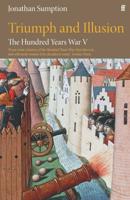Publisher's Synopsis
After Charlemagne's death in 814, Italy was ruled by a succession of kings and emperors, all of whom could claim some relation to the Carolingians, some via the female line of succession. This study offers new perspectives on the fascinating but neglected period of Italy in the ninth century and the impact of Carolingian culture. Bringing together some of the foremost scholars on early medieval Italy, After Charlemagne offers the first comprehensive overview of the period, and also presents new research on Italian politics, culture, society and economy, from the death of Charlemagne to the assassination of Berengar I in 924. Revealing Italy as a multifaceted peninsula, the authors address the governance and expansion of Carolingian Italy, examining relations with the other Carolingian kingdoms, as well as those with the Italian South, the Papacy and the Byzantine Empire. Exploring topics on a regional and local level as well as presenting a 'big picture' of the Italian or Lombard kingdom, this volume provides new and exciting answers to the central question: How Carolingian was 'Carolingian Italy'?










